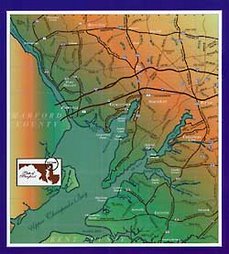Received by e-mail from C. Jagoe. It is a good read. Instead of just complaining, he takes the time to explain what his solution would be. It is refreshing to hear actual suggestions.
As a past government administrator, I was told to never base my budget requests on realistic assumptions, as this could lead to a decrease in funding. The County Commissioners are presented with budget lines. Like George W. Bush once stated, “It's clearly a budget. It's got a lot of numbers in it.” But are line budgets what we need?
The answer is NO if you want to control spending. In government, budgets are supposed to be guidelines and restraints on spending. I present my budget based upon what the amount of dollars needed to achieve the agency mission. Most administrators will pad this, anticipating that costs rise during a year. As an example, based upon last year’s budget, I purchased 100 vehicles at $25,000 each. I anticipate that 100 this year will be $26,000, or $100,000 additional funds. As it turns out, the price does not increase and I am left with a surplus. What happens now is the money is often transferred to another budget line, god forbid that government not spend the money. It may also find itself hidden in an account such as a rainy day fund.
So how do we fix it? One way would be to look at last year’s budget and what was actually spent. If the cost of a vehicle was less than expected, then it this line should be the same, and possibly less. What about personnel, the largest portion of the budget? How many vacancies existed last year? What impact did they have on the achievement of an agency mission? What were the costs of covering a vacant position? Are there contracted costs?
Remember, there is a cost we pay for government. This has little to do with the value of services we get. DO NOT let administrators give you a worst case scenario that they hope will get their budget request approved. You can scare the hell out of people by telling them that crime will increase and people will die, and seldom will say that a loved program, a program that has little to do with the agency’s primary mission, can be cut.
Zero the budget each year and make them justify each and every line item. Keep each line at the lowest possible amount. If they need funds later, they have to come back to you, JUSTIFY a request for added funds, and fund the increase with those rainy day funds. Let them know, if they come too often, then their abilities as an administrator will be called into question. It would be obvious that they do not know how to prepare or stay within a budget.
All of us worry about the quality of our schools, roads, etc., however, we must not fall into the trap of BRAC and anticipated/projected shortfalls. This is just a big money maker for owners of large parcels of land and developers. Here we fund, with tax dollars, infrastructure based upon projections that may or may not happen, or to the extent anticipated. Why not just let them all go to Harford and Baltimore counties and say the heck with BRAC? Why…because some politicians and their close friends want that development, but they don’t want to pay for it out of their pockets. These are the people that will use the scare tactics.
Friday, June 5, 2009
Taxes by C. Jagoe
Posted by
Tim Zane
at
2:29 PM
![]()
Labels: Property Taxes
Subscribe to:
Post Comments (Atom)


No comments:
Post a Comment